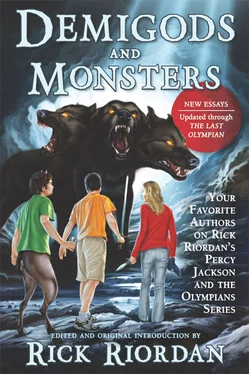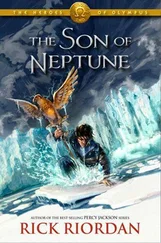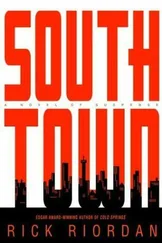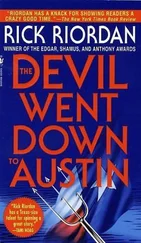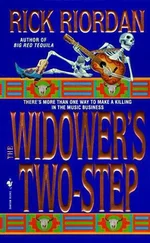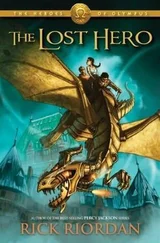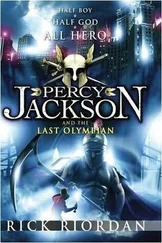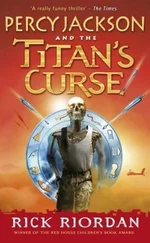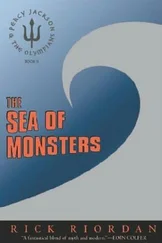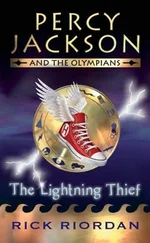New Essays
Your Favorite Authors on Rick Riordan’s Percy Jackson and the Olympians Series
Edited and Original Introduction by Rick Riordan with Leah Wilson

An Imprint of BenBella Books, Inc.
Dallas, TX
INTRODUCTION
Rick Riordan
PERSONS attempting to find a motive in this narrative will be prosecuted; persons attempting to find a moral in it will be banished; persons attempting to find a plot in it will be shot—BY ORDER OF THE AUTHOR.
—MARK TWAIN, front matter to Huckleberry Finn
X-Raying the Author’s Head
Many years ago, before Percy Jackson appeared in my life, I was known primarily as a writer of grown-up mystery novels. One night I was doing an event with two other authors, and one of them was explaining why he liked my book The Devil Went Down to Austin .
“The structure is amazing,” he told the audience. “It’s a book about scuba diving, and as the characters go deeper into the dark murky water, the plot also gets darker and murkier. The symbolism is really clever.”
The audience looked suitably impressed. I looked confused.
I use symbolism? Who would’ve guessed?
After the event, when I confessed to the other author that I hadn’t done the murky structure thing intentionally, that perhaps it was just the result of my faulty outlining, his jaw dropped. He’d studied my writing. He’d made brilliant insights. And I’d just been telling a story? Impossible!
That doesn’t mean his insights weren’t valuable, or that the symbolism wasn’t there. But this does raise an important point about the difference between writing a story and analyzing it.
Any book, for children or adults, can be read on many levels. We can simply enjoy it. Or we can look for hidden meanings and nuances. We can even write essays about the book, exploring it from different angles.
The writer’s job is to write the book. The careful reader’s job is to find meaning in the book. Both jobs are important. The meanings you find can enlighten, fascinate, and surprise. They can even surprise the author. The author, at least this author, uses symbols and themes subconsciously. I don’t think about it, any more than a native speaker of English consciously thinks about subject-verb agreement as he speaks.
The front matter to Huckleberry Finn has always been one of my favorite Mark Twain quotes. Twain was adamant that readers simply read his book, not scrutinize it for morals or messages, much less a plot structure. Of course, this has not stopped generations of English majors from writing their graduate theses on the novel.
When I was first approached about editing this anthology, I wasn’t sure what to think. Why would so many talented writers want to write about my children’s books? And yet, when I read their essays, I was amazed. Each had a different angle on Percy Jackson—all of them fascinating and thought-provoking. Many of them made me think, “Is that what I was doing in the series?” It was like having someone take an x-ray of my head. Suddenly, I saw all this stuff going on inside that I was never aware of.
Maybe that’s why Mark Twain tried to warn off critics who wanted to interpret his work. It’s not that the interpretations are wrong. It’s that they tend to be a little too close to home!
The Accidental Demigod
I never intended to write the Percy Jackson series.
When my oldest son was in second grade, he began having problems in school. He couldn’t focus. He didn’t want to sit down and read. Writing was a painful challenge.
Being a novelist and a middle school teacher, I had a hard time accepting that my son hated school. Then came the fateful parent conference when the teachers suggested my son get a full psychoeducational evaluation. A few weeks later we got the results: ADHD and dyslexia.
These were not new concepts to me. I had taught many students with learning differences. I had made modifications. I’d filled out evaluation forms.
But when the child in question is your own son, it’s different.
How could I help him make sense of what was going on with him? How could I frame the problem in a positive way?
In the end, I fell back on what I knew best—storytelling.
My son’s saving grace in second grade was Greek mythology. This was the only part of the curriculum he enjoyed. Every night, he would ask me to tell him bedtime stories from the myths, and when I ran out of them, he asked me to make up a new one.
And so it sprang from my mind unbidden—like Athena from Zeus’ forehead—the myth of how ADHD and dyslexia came to be. I created Percy Jackson, a Greek demigod in the tradition of Hercules and Theseus and Perseus, except Percy is a modern kid. He has ADHD and dyslexia, and he learns that taken together, those two conditions indicate without a doubt that he has Olympian blood.
In The Lightning Thief , ADHD means you have finely tuned senses. You see too much, not too little. These reflexes don’t serve you well in a boring classroom, but they would keep you alive on the battlefield. Dyslexia indicates that your brain is hard-wired for Ancient Greek, so of course reading English is a struggle.
My son had no trouble buying this theory at all.
In the story, Percy Jackson discovers that being different can be a source of strength—and a mark of greatness. Being academically hopeless does not mean you are a hopeless person. Percy was my way of honoring all the children I’ve taught who have ADHD and dyslexia, but more importantly he was a myth for my son to make sense of who he is.
When I was done telling the story, my son told me to write it down. I was dubious. I didn’t think anyone would like it, and I didn’t exactly have a lot of spare time. I was already teaching full-time and writing a mystery novel a year. But I made the time and wrote The Lightning Thief .
My son loved the final version. Apprehensively, I gave the manuscript to some of my students. They loved it too. I sent it off to the publishers under a pseudonym so I wouldn’t be embarrassed by the flood of rejection notes. Within weeks, the book went to auction and was snapped up by the Disney Book Group.
At the end of that school year I became a full-time children’s writer. The Percy Jackson series was soon published around the world.
If you’d told me five years ago that someone would want to create an anthology of essays based on a bedtime story I made up for my son, I would’ve called you crazy.
The Power of Myth
So why does the series resonate with young readers? Why do people still want to read Greek myths? These are stories from a long time ago about a very different society. What possible relevance could they have in the twenty-first century?
Certainly, you can get through life knowing no mythology, but it would be a pretty poor existence. Mythology is the symbolism of civilization. It contains our most deeply embedded archetypes. Once you know mythology, you see it everywhere—from the names of our days of the week to our art and architecture. You would be hard-pressed to find any work of English literature that does not draw to some extent on classical mythology, whether it’s the hero’s quest or allusions to the Olympians.
So knowing mythology makes one a more informed member of society, but its importance goes beyond that. Mythology is a way of understanding the human condition. Myths have always been man’s attempt to explain phenomena—and not just why the sun travels across the sky. Myths also explain love, fear, hate, revenge, and the whole range of human feelings.
Читать дальше
